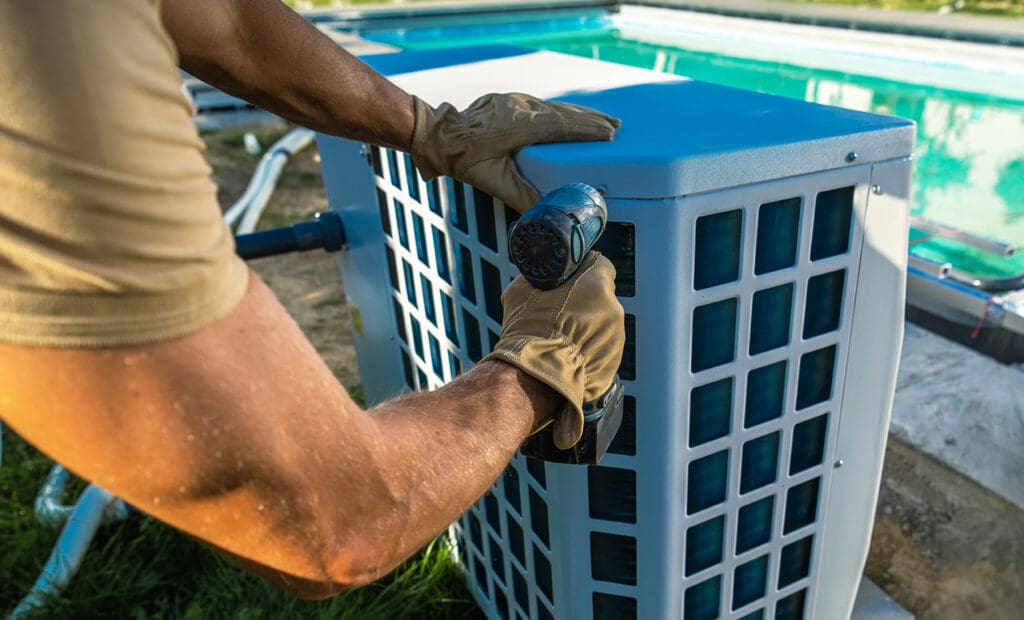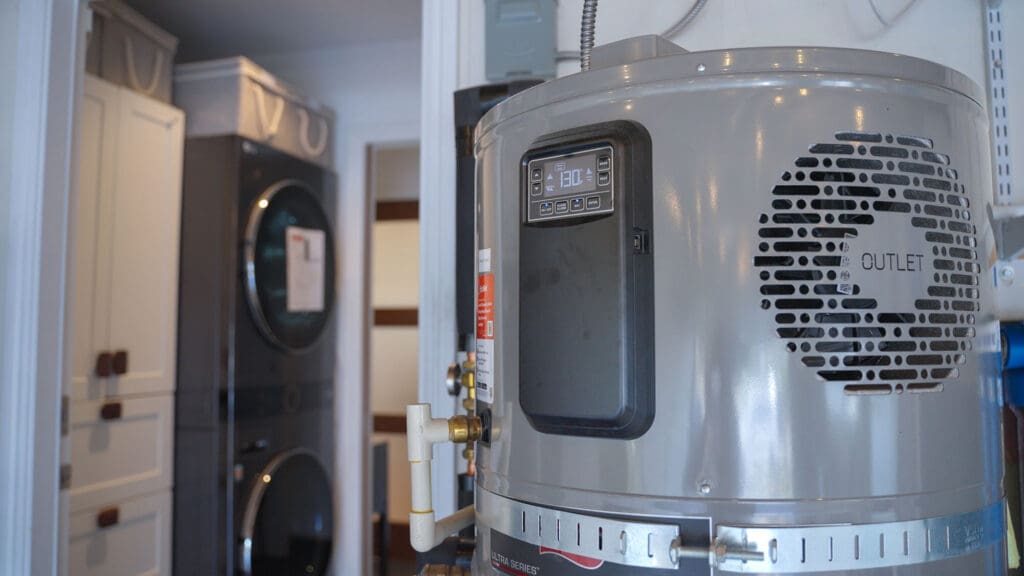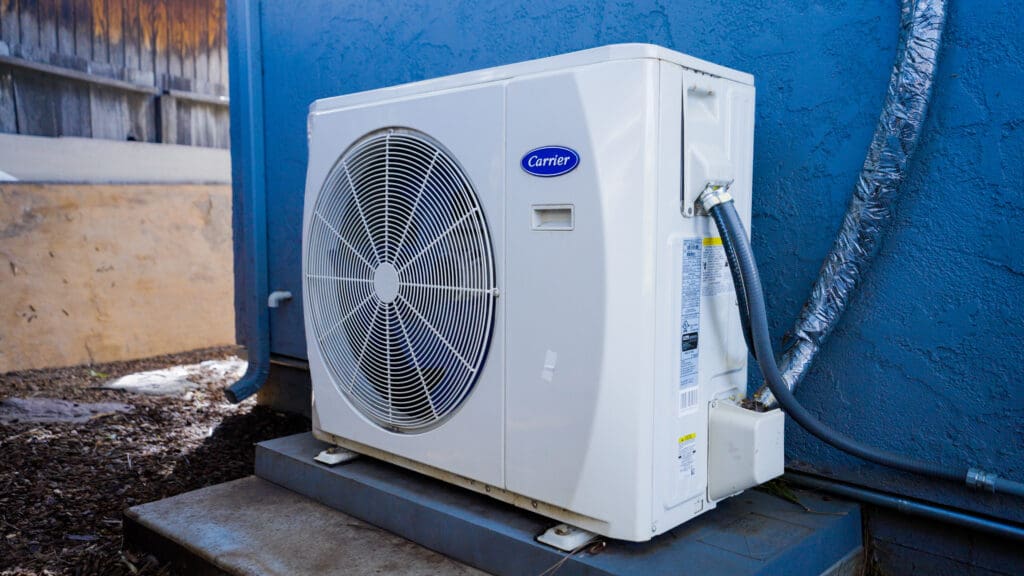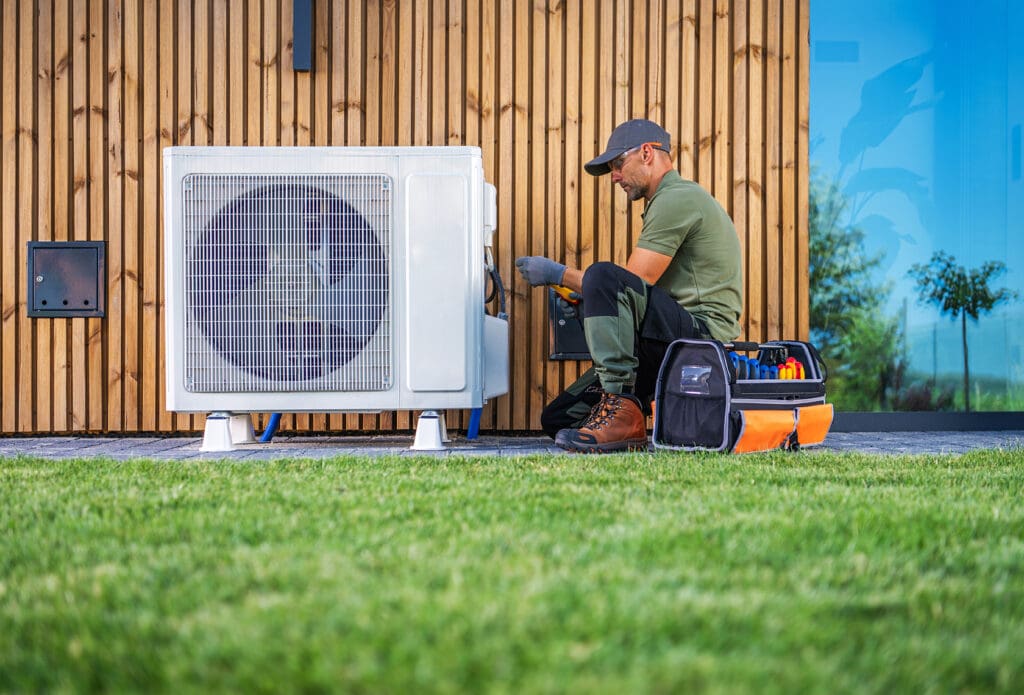Home Electrification
Make your home electric
Find the services, rebates, and appliances you need to move easily from gas to electric. From DIY to done-for-you, we can help you take the guesswork out of going electric.

Get started
Rebates & financing
Expert advisor
Full-service installation
24/7 emergency replacement
Upgrade Your Home
Saying goodbye to gas is better for you & your family
Do you want your home to be safer, cleaner, and more efficient? Replacing current gas appliances and installing electric appliances will achieve all of those needs. Plus, over the long-term, electric appliances are cheaper to operate than gas appliances.
Studies show electric homes improve indoor air quality. Switching from gas to electric can also lower your energy costs and reduce the negative impact on the environment.
Here are a few examples of old gas equipment that can be updated to electric. Click to learn more:
Benefits
Is it worth going electric?
Here are 8 reasons to consider switching from gas to electric appliances.
Health & safety
Improved home air quality
Gas appliances release harmful pollutants into the air in your home, contributing to respiratory problems, allergies, and other health issues. According to the Environmental Protection Agency (EPA), indoor air pollution can be up to 5 times higher than outdoor levels. [Source: EPA]
Reduced risk of carbon monoxide illness
Gas leaks can lead to carbon monoxide illness, a serious health hazard. It is estimated that more than 100,000 people visit the emergency room each year in the United States due to carbon monoxide. [Source: Centers for Disease Control and Prevention]
Resilience to climate change
Improved outdoor air quality
Financial benefits
Lower energy costs
Electric appliances can be more energy-efficient than their gas counterparts, leading to lower monthly energy bills. For instance, heat pumps can be up to 3 times more efficient than gas furnaces.
[Source: Department of Energy]
Increased property value
Homes with modern, energy-efficient, electric appliances and systems are often more attractive to buyers and tenants, which can increase property values. One study found that energy-efficient structures can sell for 5% higher than comparable structures. [Source: National Association of Realtors]
Reduced maintenance costs
Electric appliances and systems generally require less maintenance than gas-powered ones, lowering your maintenance costs. Electric heat pumps can have 30% lower maintenance costs than gas furnaces. [Source: Lawrence Berkeley National Laboratory]
Preparing for the end of gas service
Electrification Planning
Get free help when you’re ready to go electric
Our concierge service can help you with electrification planning, technical questions, comparing contractor quotes, and maximizing energy usage on your new upgrades. Schedule an appointment with an Electrification Advisor to help plan your project.


Energy Cost Savings
Will you save money with electric appliances vs. natural gas?
Here’s an easy way to think about this: DOWN, UP, DOWN
Here’s the reality: throughout the lifetime of your new electric appliance, your total energy costs, compared to gas, will go DOWN.
Your gas cost for that appliance is $0, but the electricity portion of your bill will go UP.
With every gas appliance you replace, the pollutants in your home will go DOWN.
That’s the Down, Up, Down of going electric.

Heat Pump Water Heaters
Save thousands with more cost-effective water heating
Rather than using fossil fuels to create artificial heat, a heat pump water heater (HPWH) extracts the heat from the surrounding air to heat your water. This efficient process lowers your energy bills. Although an HPWH costs more upfront than a gas water heater, choosing HPWH can save you thousands of dollars over the lifetime of the water heater.
A typical four-person household could save between $100 and $200 per year on electricity by switching to a heat pump water heater and utilizing the E-ELEC rate. Given the average lifespan of a water heater is around 10-15 years, a household could expect to save between $1,000 and $3,000 over the lifetime of a heat pump water heater compared to a gas water heater.
Top reasons to choose a heat pump hot water heater over a traditional gas water heater
Heat pump water heaters are significantly more energy-efficient, up to 3 times more efficient than gas.
Heat pump water heaters use electricity, which can be generated from renewable sources, thereby reducing greenhouse gas emissions.
While installing a more efficient gas water heater might reduce greenhouse gas emissions by 10%, electrifying the water heater reduces greenhouse gases by 100%.
In addition to heating water, some heat pump water heaters can be used for space heating—a dual-purpose solution that lowers your energy costs.
HPWHs can reduce heating costs by up to 25%.
Minimize the cost of a new HPWH
Are you interested in exploring HPWHs? Rebates are available to reduce the upfront cost, and we will help you find one.

Heat Pump HVAC
Minimize costs while increasing comfort
A heat pump heating, ventilation, and air conditioning (HVAC) system is cost-effective, and it heats and cools in one unit.
Heating and cooling are fundamental to your and your family’s comfort. A modern heat pump system extracts heat from the outside air to warm your home in the winter. Then, it reverses the process to cool your home in the summer, eliminating the need for separate heating and cooling systems. This results in significant energy savings, lower maintenance costs, and less negative environmental impact. Heat pump HVAC systems can provide reliable cooling and heating in temperatures from -22℉ to 115℉.
Top benefits of a heat pump HVAC system
Many heat pumps have built-in air filters that can help remove pollutants and allergens from the air.
This filtering can lead to a healthier and more comfortable home for you and your family.
Heat pumps provide both heating and cooling, eliminating the need for separate systems.
They can maintain comfortable temperatures throughout the year, even in very cold or very hot climates.
Heat pumps can reduce heating and cooling costs by up to 15% compared to traditional HVAC systems.
The U.S. Department of Energy estimates that a heat pump can save homeowners an average of $150 to $250 per year in energy costs.
Heat pumps use electricity, which can be generated from renewable sources, thereby reducing greenhouse gas emissions.
A study by the National Renewable Energy Laboratory (NREL) found that, while installing a more efficient gas heater might reduce greenhouse gas emissions by 5%, electrifying the water heater reduces greenhouse gases by 100%.
Minimize the cost of a new heat pump HVAC system
Are you interested in exploring a heat pump HVAC for your home? There are rebates available to reduce your costs. We’ll help you find one.

Electric Dryers
Weighing the benefits of electric vs. gas laundry drying
Both electric and gas dryers have their advantages.
But new electric dryers are often safer, less expensive, and more environmentally friendly.
To help you make the best choice for your home, we compare the two.
Comparing electric & gas dryers
Electric
Electric dryers are generally safer, as they do not produce harmful gasses.
Gas
The National Fire Protection Association (NFPA) reports that gas dryers are the leading cause of dryer fires in the United States.
Electric
The initial cost of a new electric dryer is usually the same as a new gas dryer, although the cost to run it may be slightly higher. According to the U.S. Department of Energy, a newer dryer can save you up to 20% in energy costs compared to an older model.
Gas
Gas dryers are often more expensive to purchase but may cost less to operate, depending on gas prices, which may continue to increase.
Electric
Using an electric dryer powered by renewable energy reduces your carbon footprint.
Gas
Gas dryers contribute to greenhouse gas emissions, because the gas is derived from fossil fuels.
Minimize the cost of a new electric dryer
Are you interested in exploring a electric dryer for your home?
There are rebates available to reduce your costs.

Electric Yard Equipment
A cleaner, quieter way to keep your yard in great shape
With local and state mandates requiring the replacement of gas-powered equipment, electric yard equipment has surged in popularity.
Here are five reasons why going electric has become so popular:
While the initial cost of battery- and electric-based equipment is often higher than that of its gas-powered counterparts, electric equipment is cheaper to run over its lifetime, considering the cost of fuel and oil.
Electric equipment requires less maintenance. This means lower overall costs and fewer headaches.
You’ll spend less time maintaining the equipment and more time enjoying your yard.
Plus, eliminating trips to the gas station for fuel and oil can result in substantial savings over time.
Lower noise levels and less vibration make electric equipment more enjoyable to use and lowers the risk of injuries.
Furthermore, eliminating emissions can enhance the air quality around your home.
Yard equipment is usually powered by noisy and dirty two-stroke engines.
Electric yard equipment eliminates both of those issues, so you don’t disturb your neighbors. They will thank you for it.
Plus, electric equipment enhances your image as environmentally conscious and socially responsible.
Many people appreciate neighbors who prioritize sustainability and reduce noise pollution.
Electric equipment produces zero emissions, mitigating climate change.
Due to environmental concerns, many municipalities are imposing restrictions or outright bans on gas-powered equipment, so it’s smart to be ahead of the game.
Recent advancements in battery technology have increased the range and power of electric equipment.
The development of faster and better chargers also makes it easier to charge and use electric equipment.
Minimize the cost of new electric yard equipment
Are you interested in exploring electric yard equipment for your home?
There are rebates available to reduce your costs.

Electric Induction Cooking
Prepare food the safer, more modern way
Induction cooking is a modern method that uses electromagnetic fields to heat cookware directly, rather than wastefully heating the surrounding air. Whether you are upgrading from your current cooktop or installing a whole new kitchen, there are clear benefits to installing induction cooktops over gas stoves.
Top 5 benefits of induction cooking
Learn more about this popular choice for modern kitchens.
Induction cook tops make it easier to achieve consistent results for various cooking tasks.
This precision is particularly beneficial for delicate dishes like sauces and desserts.
Induction cooktops can heat up and cool down much faster than traditional stovetops.
This efficiency saves time and energy, especially for tasks like boiling water or searing meat.
Induction cooktops don’t produce open flames or harmful gasses.
They are also less likely to cause accidental burns, since the cooktop only heats up when cookware is placed on it.
Induction cooktops have a flat, smooth cooking surface.
Spills and messes can be wiped up easily without the need for scrubbing.
According to the U.S. Department of Energy, induction cooktops can be up to 85% efficient compared to 50%-65% for gas and 75%-80% for standard electric.
Minimize the cost of a new induction cooktop
Are you interested in exploring electric induction cooktops for your home?
There are rebates available to reduce your costs.

Contractor Finder
Find help to stop using gas
Do you need help finding the right contractor to convert your home appliances from gas to electric? We have a searchable list of approved licensed contractors, plus a complete guide to working with them. Make your journey to a gas-free lifestyle as easy as possible!

Support
Get help going electric
Taking steps toward an all-electric life doesn’t have to be expensive or overwhelming. We’re here to support you at your own pace. Set up a zero-cost, no-obligation consultation call with one of our electric experts.
You can get answers to your questions, find contractors, and make sure you get all of the rebates you are eligible for.
Home Electrification FAQ
Your questions, answered
Switching to all-electric appliances can have numerous benefits for you and your family.
Electric appliances are generally more energy-efficient than their gas counterparts, which can lead to significant savings on your utility bills.
Additionally, electric appliances produce fewer harmful emissions, contributing to cleaner air and a healthier environment.
Usually, yes.
But while upfront costs may vary, electric appliances often have lower long-term costs due to their longer lifespans, higher energy efficiency, and lower maintenance costs.
Over time, the savings on your utility bills should offset the initial price difference.
Electric stoves and ovens have improved greatly in recent years, and they can offer comparable performance to gas appliances.
Many modern electric models feature advanced technology, such as induction cooking, which provides precise heat control and fast cooking times.
Regular inspections and maintenance of your electrical system are crucial to ensure safety.
Consider hiring a qualified electrician to assess your home’s wiring and make sure it can handle the increased demand of electric appliances.
No. Electric appliances powered by renewable energy sources, such as solar or wind, can significantly reduce your carbon footprint.
By choosing electric appliances, you’re contributing to a cleaner and more sustainable future.
Yes. We have several available from us, as well as many government incentives.
These offers may include tax credits, rebates, and low-interest loans.
It’s worth checking out our rebates page to see what’s available to you.
There are several ways to conserve energy with electric appliances.
Consider using energy-efficient models with ENERGY STAR certification, turning off appliances when not in use, and using timers or programmable thermostats.
Studies have shown that homes with energy-efficient features, including electric appliances, tend to have higher property values.
Buyers are increasingly seeking homes that are environmentally friendly and cost-effective to operate.
Modern electric appliances are generally quieter than their gas counterparts.
However, it’s always a good idea to research specific models and read customer reviews to get a sense of noise levels.
Yes, you can. Some homeowners choose to keep some gas appliances while switching to electric for others.
Newsletter
Keeping up with PCE
Would you like to stay informed about PCE’s efforts to bring clean, affordable electricity to your home?


